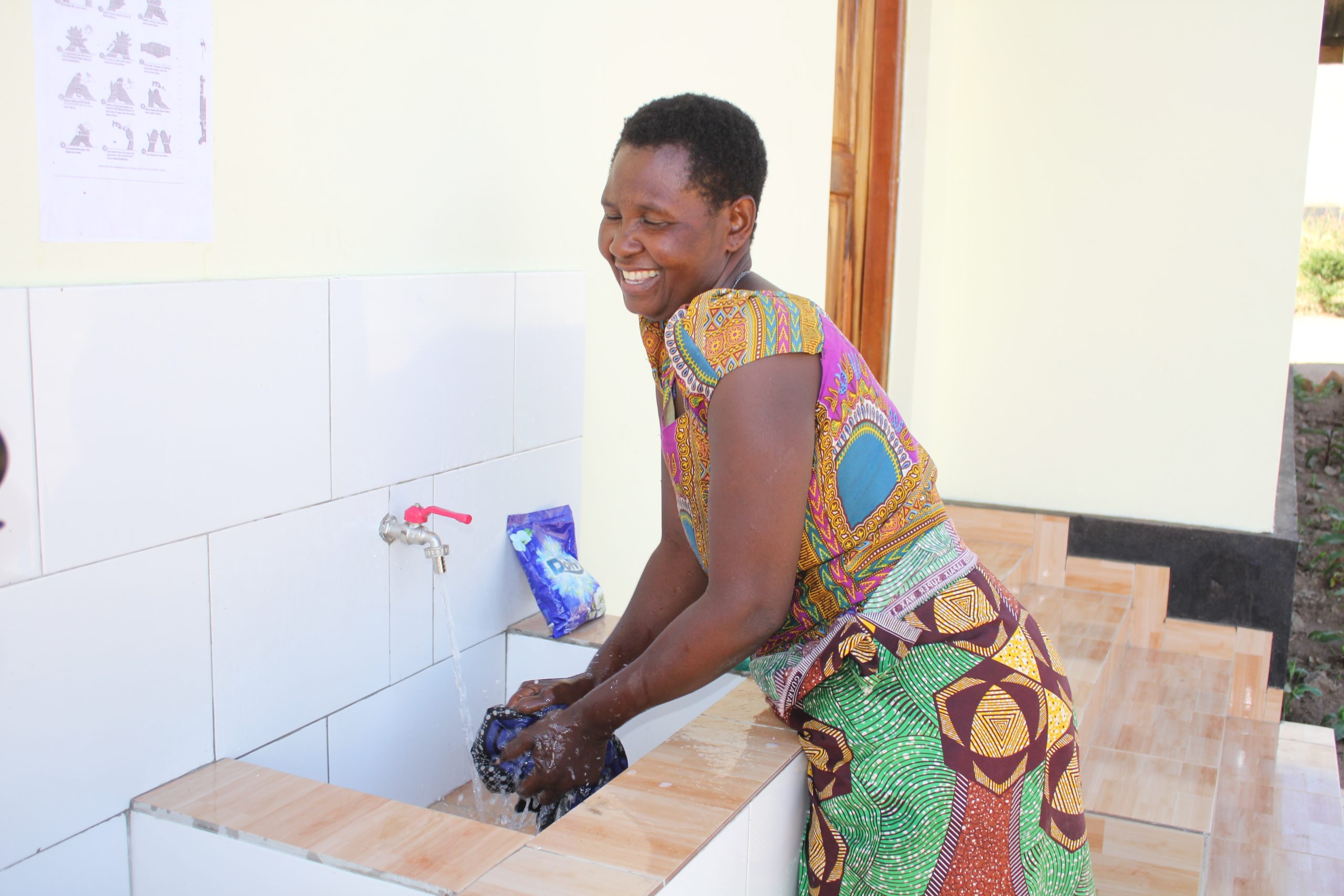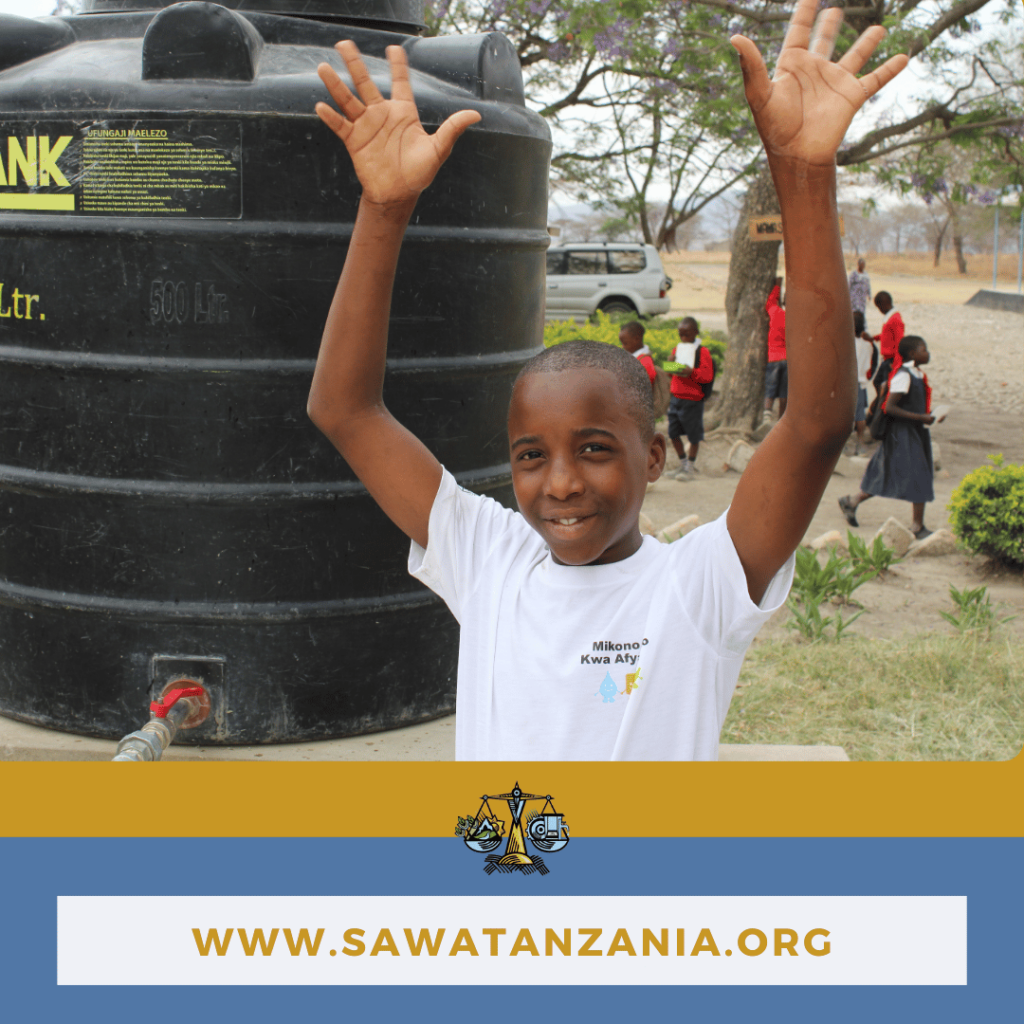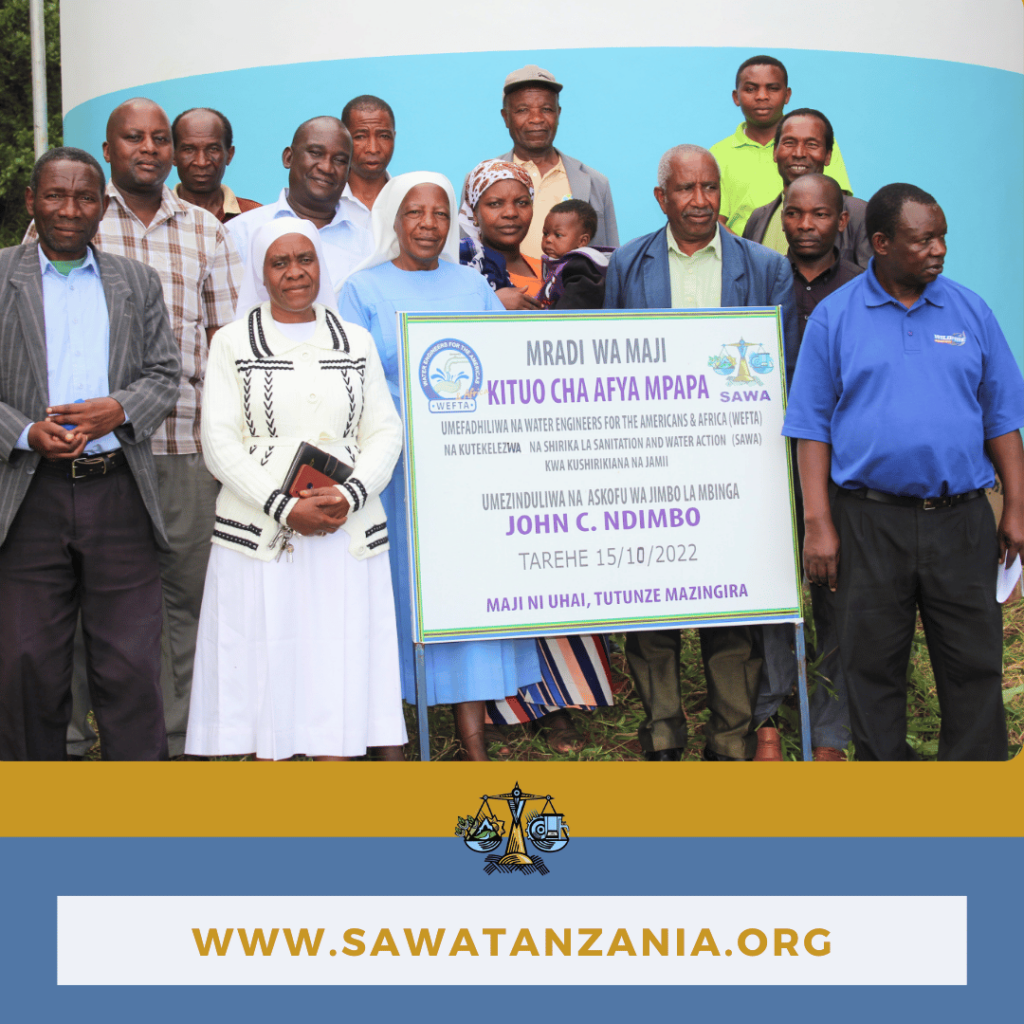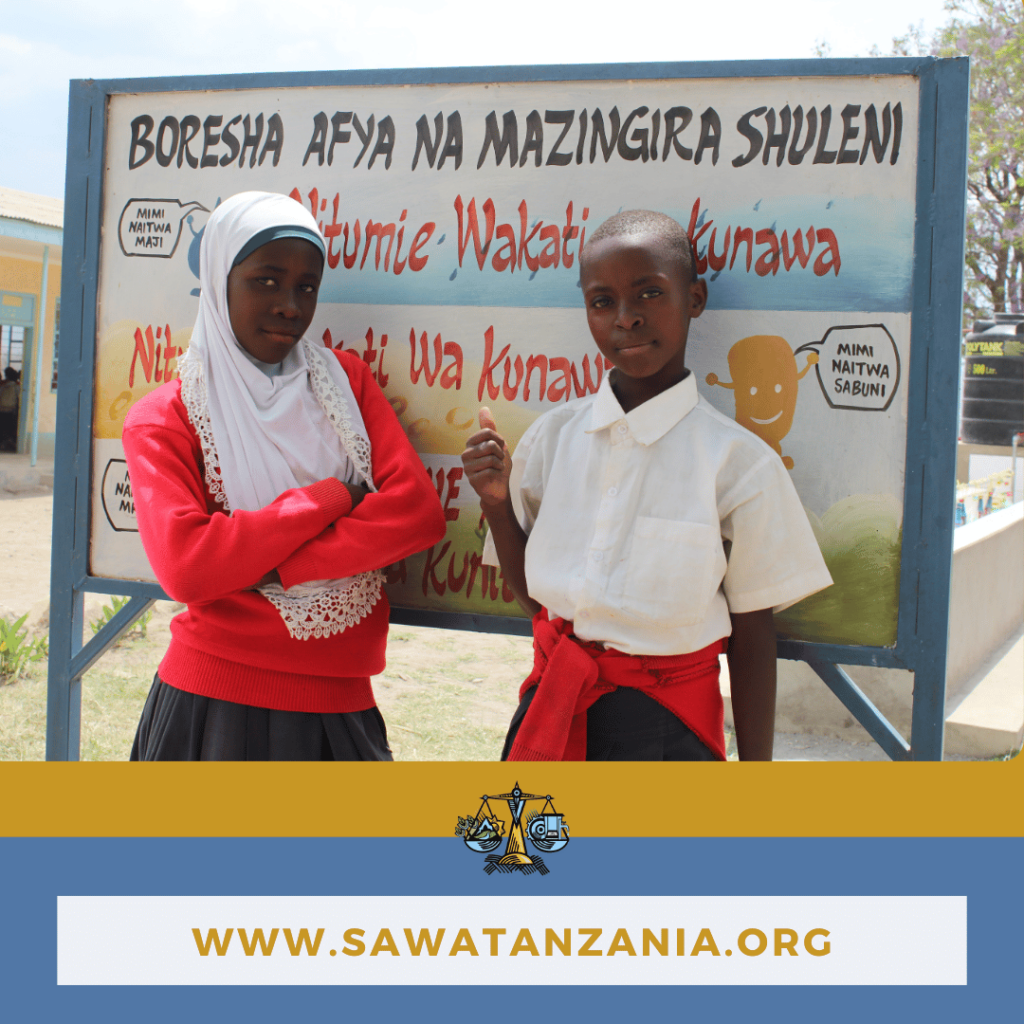
Funded by: United Nations International Children’s Emergency Fund (UNICEF).
Implemented by: Sanitation and Water Action (SAWA).
In collaborations with: Local District Councils of Mbozi, Tunduma, and Mbeya
Project Duration: 2022 – 2024
Total Project Cost: TZS 1,794,805,269.59
- UNICEF Contribution: TZS 1,742,029,419.59
- Community Contribution: TZS 52,775,850 (labor, materials, and maintenance)
Project Overview
The “Enhancing WASH Facilities in Schools and Health Centers in Songwe and Mbeya Regions” project represents a significant effort by Sanitation and Water Action (SAWA) and UNICEF to improve Water, Sanitation, and Hygiene (WASH) infrastructure in under-resourced educational and healthcare facilities. With a primary focus on providing clean water, sanitation, and hygiene, this project has made far-reaching improvements across 11 schools and 10 healthcare centers, positively impacting thousands of students, educators, healthcare workers, and community members.
This project aims to reduce health risks, foster better learning and working environments, and promote sustainable health practices in Tanzania’s Songwe and Mbeya regions.
Scope and Objectives
The project has been designed to address critical WASH needs in the following areas:
- Enhance access to clean water, sanitary facilities, and hygiene resources for students and patients.
- Upgrade infrastructure in schools and health centers to meet higher hygiene standards.
- Empower communities through active involvement in project implementation and maintenance, fostering a culture of sustainability and shared responsibility.
Project Achievements
1. Improvements in Educational Facilities
Through the project, 11 schools have received substantial WASH infrastructure upgrades, impacting a total of 13,564 students and teachers (6,537 male and 7,027 female). The schools include:
- Schools Supported by UNICEF’s WASH Unit:
- Magamba Primary School
- Msanyila Primary School
- Mlowo Primary School
- Ichesa Primary School
- Mlangali Primary School
- Hampangala Primary School
- Schools Supported by UNICEF’s Education Unit (MEMKWA Program):
- Haloli Primary School
- Nambinzo Primary School
- Isenzanya Primary School
- Msiya Primary School
- Mpemba Primary School
Key improvements include:
- Sanitation Facilities: Construction of 200 new toilet units, specifically 170 for students, 18 for teachers, and nine accessible toilets for students with disabilities.
- Water Access: Installation of three deep boreholes (at Magamba, Msanyila, and Ichesa primary schools) to ensure a steady supply of clean water for drinking and handwashing.
- Star Rating System Improvements: Prior to the project, the hygiene standard in many schools was rated low. Now, 10 schools have achieved three-star ratings for cleanliness, and five schools hold two-star ratings. No schools remain at a one-star level.
These upgrades have contributed significantly to creating safe, healthy, and conducive learning environments.
2. Healthcare Facility Upgrades
SAWA also applied the WASHFIT (Water, Sanitation, and Hygiene Facility Improvement Tool) model to improve WASH infrastructure in 10 health centers. This initiative has had transformative effects, as it ensures safe, hygienic environments for patients and staff. Beneficiary facilities include:
- Healthcare Centers:
- Isansa Health Center
- Nanyala Health Center
- Dispensaries:
- Mlowo Dispensary
- Lungwa Dispensary
- Magamba Dispensary
- Lwati Dispensary
- Nansama Dispensary
- Ipyana Dispensary
- Ichesa Dispensary
- Igunda Dispensary
Key healthcare facility improvements:
- Sanitation Infrastructure: Renovations and new installations of sanitation facilities and wastewater management systems, ensuring clean, safe patient and staff facilities.
- Handwashing Stations: Installation of multiple handwashing stations at each center to promote hygiene and prevent the spread of infection.
- Enhanced Water Supply: At Nanyala Health Center, a new water pump and stabilizer were installed, ensuring a reliable and stable water supply essential for patient care and hygiene.
Community Involvement and Sustainability
One of the project’s notable achievements is the engagement and contribution of local communities. The community’s role went beyond passive involvement, as they contributed TZS 52,775,850 in labor and materials, including sand, bricks, stones, excavation services, and water hauling to assist in the construction. This involvement has reinforced a sense of ownership and commitment to maintaining the facilities, ensuring their long-term sustainability.
Project Cost Breakdown
The project, totaling TZS 1,794,805,269.59, was primarily funded by UNICEF, with significant support from community members. The breakdown is as follows:
- UNICEF Funding: TZS 1,742,029,419.59, covering costs for infrastructure development, equipment, and materials.
- Community Contributions: TZS 52,775,850, accounting for labor, locally sourced materials, and other in-kind contributions.
Impact and Conclusion
This project has had a profound impact on the communities of Songwe and Mbeya by addressing fundamental needs for clean water, safe sanitation, and hygiene in both schools and healthcare settings. With upgraded WASH infrastructure, the project has transformed these facilities, enabling better health outcomes, reducing disease transmission risks, and creating an environment where learning and healthcare can thrive.
SAWA’s partnership with UNICEF and local councils has been essential to the success of this project, setting a precedent for future collaboration and community-centered development in Tanzania. The project serves as a model for sustainable development in underserved regions, showing how partnerships and community engagement can create lasting change.



